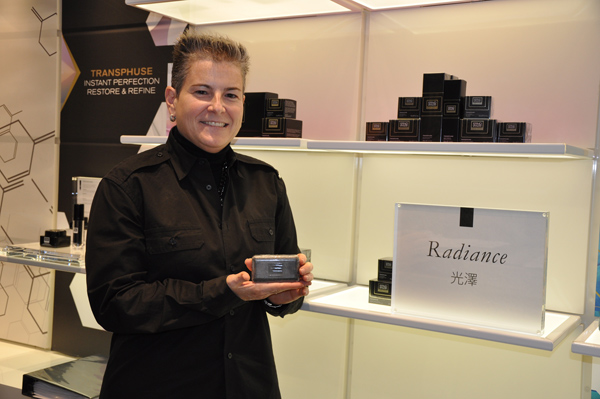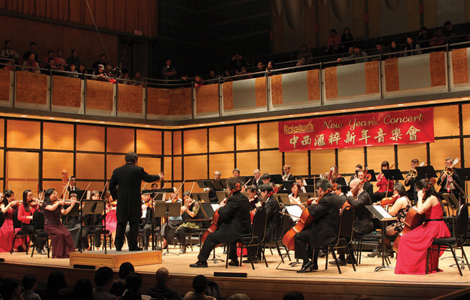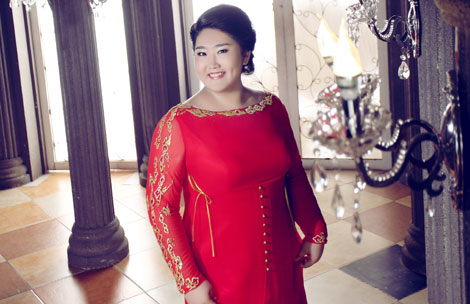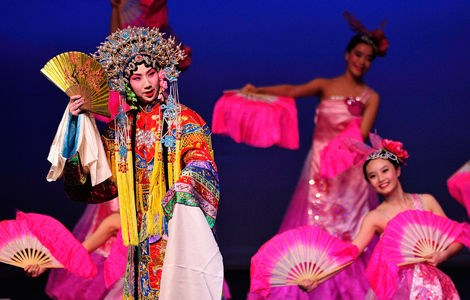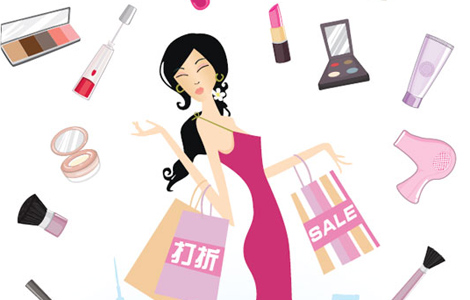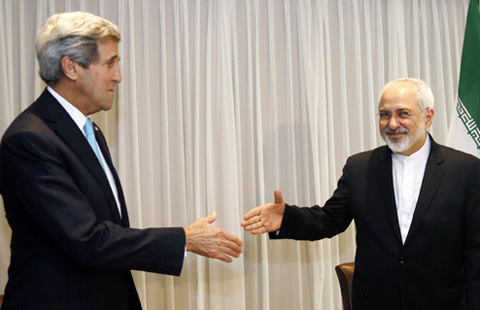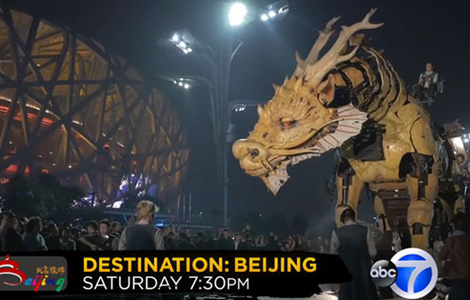Going for China's glam market
Updated: 2015-01-16 12:02
By Zhang Yuwei(China Daily USA)
|
||||||||
Land of opportunity
The cosmetics sector in China - the world's No3 cosmetics market - has been growing at a fast pace with the country's economic growth in recent years, creating opportunities for many foreign brands. The total retail sales of skincare products and make-up products in China reached 131.4 billion yuan ($21 billion) and 18.8 billion yuan ($3.1 billion), respectively in 2013, achieving year-on-year growth of 9.1 percent and 7.3 percent, respectively, according to British market intelligence firm Euromonitor.
Yuan said despite the competitiveness the market is big enough for different levels of foreign brands to establish and make their own China stories.
"In China, focusing on their strengths will allow Western brands to do well, rather than competing in the mass market, which is much more price-driven, and in which the halo of being a Western brand is less likely to impact sales," said Yuan. "Particularly as Chinese brands become better marketers, Western brands will have to double down on their unique differences."
Despite Western brands, such as Estee Lauder and L'Oral, which entered in the Chinese market in the early days and have dominated the ranking chart, newer brands want to open their own channels in this growing market by selling their unique experiences to customers in the world's No 2 economy.
Erno Laszlo, a skincare brand created by late Hungarian-American dermatologist Erno Laszlo, is one of them.
As the brand turns 88 this year, it has big expansion plans for China, where it launched its first three counters in Shanghai and Xi'an in 2014. The brand is planning for 10 stores by the end of this year and 100 counters in the next five years, said CEO Rochelle Weitzner.
The brand had to wait almost nine months to get regulatory approval for its launch in China, but Weitzner said "it's all worth it".
Erno Laszlo - with its best seller $45 Sea Mud Deep Cleansing Bar - markets itself as a "celebrity's skincare" brand with customers such as late Hollywood stars Marilyn Monroe and Audrey Hepburn as well as the current A-listers like Brooke Shields and Nicole Kidman. The company's members-only The Institute in New York's Soho is a place where its celebrity customers visit for spa services.
In China, the brand has only a small group of customers, but Weitzner believes it is more important to have a solid reputation than a fast return of profit.
"We are not really targeting a particular consumer group; what we are targeting is those individuals who are very passionate about skincare and want to see results," she said.
Weitzner said the way the company markets the brand is by "word of mouth". With a similar strategy of celebrity endorsements in China, the company tries to work with local Chinese public relations firms to get influential personalities to use the products and spread the word.
The selling point of Erno Laszlo, according to its CEO, is to offer Chinese customers a unique "education" of its skincare ritual, which includes its special instructions for using the sea mud soap bar and its skincare concept of a clocking system that shows a person's different skin conditions at different hours of the day.
Erno Laszlo sells its concept of being committed to skin caring as Weitzner puts it: "It doesn't take a miracle to have perfect skin, it takes a commitment."
For the Chinese market, she said, their products also respond to consumers' increasing concern about pollution.
"Our products are for those who are passionate about having the best possible skin they can and understand that commitment is involved," said Weitzner.
Avery Booker, a partner at China Luxury Advisors, a Los Angeles, New York, and Paris-based firm that helps luxury brands and retailers attract affluent Chinese consumers in the US and Europe, said despite clear opportunities, China's beauty market is "trust-based" and difficult to crack.
"Brands new to the market will have to work hard to court the right consumer demographic, work with the right market influencers, and figure out how to make a compelling value proposition," said Booker.
The Chinese beauty market increased 13 percent in 2013 to $26.4 billion, down from 17 percent growth from the previous year when global multinationals Procter & Gamble, L'Oreal and Shiseido dominated the market, according to digital research firm L2.
Booker said regardless of the overall growth in China's cosmetics market, smaller brands have a great opportunity this year to engage outbound Chinese tourists, students, and partial emigrants, who make a significant amount of beauty purchases in New York, Los Angeles, Paris, and elsewhere.
Positive outlook
Millward Brown's Yuan said that despite the slow growth of the cosmetic market in China, the outlook for the beauty market is positive because of consumers' growing enthusiasm to explore new and different products.
"The consumer exposure and interest in brands continues, particularly in sectors like personal care and cosmetics, as the population continues to urbanize," said Yuan. "The growth rate might slow from previous years, but will still be ahead of stagnant or declining rates for well developed markets like Western Europe or North America."
Liu, the Chinese media specialist, said Chinese consumers are keen on getting reliable products and brands - be it domestic or Western.
"I find that credibility, quality and reputation of a brand is important among Chinese customers who now have many choices because of the size of the market," she said.
Yuan, the branding expert, agrees.
"China will continue to be an opportunity area for Western brands, as they still hold strong prestige and quality attributes for the Chinese consumer, especially in the face of product safety concerns for domestic Chinese brands," Yuan said.
Domestic brand and Asian brands - Japanese and Korean - are becoming more competitive in China's beauty market, making Western brands difficult to stand out.
However, the increasing e-commerce trend in China has opened a new channel for foreign brands to reach out to more customers in China. An L2 report finds that store-based retail of beauty products has declined in China while online retail sales have soared since 2007.
The Internet is one of the reasons why Chinese consumers are savvier about the numerous brands and specific ingredients that are in the market, said Robb Akridge, global general manager of Clarisonic, a L'Oreal-owned company that produces electronic cleansing brushes.
"E-commerce allows brands to deliver products to the consumer rapidly without having to depend on brick and mortar retail stores for their distribution. It also gives companies like Clarisonic the opportunity to update consumers instantly with information about our products," said Akridge.
Chinese consumers have embraced the Clarisonic's technology so well that it has given the company consistent double digit growth since its launch in 2013, he said.
Internet users hit 618 million in China, larger the the whole US population.
Most of foreign brands now are participating in Chinese social media channels including Sina Weibo - a Twitter-like a micro-blogging site - and WeChat - a mobile communication and social networking app that has438 millionmonthly active users, catching up to the 500 million-user-based WhatsApp.
Most Viewed
Editor's Picks

|

|

|
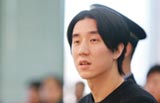
|

|

|
Today's Top News
HK donor gives $1 million to NYPD officers' families
Congresswoman warns of immigration scams
Silicon Valley will mark Spring Festival
Beverly Hills rolls out red carpet for Chinese tourists
US rebound should lift China
Miami to China: Come see about us
Teens to face trial in killing of Chinese student
Chinese piece headlines Carnegie recital
US Weekly

|

|
